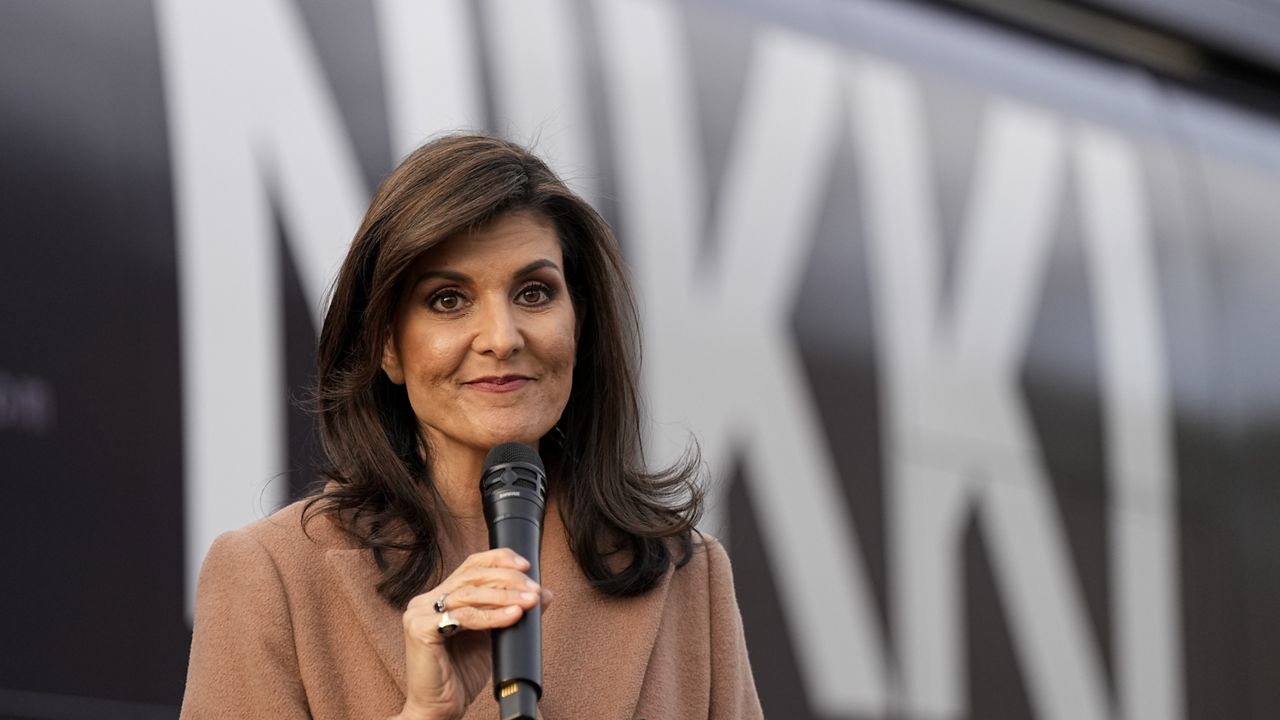Former U.N. Ambassador Nikki Haley, one of the last remaining candidates left in the race for the Republican nomination, says that if elected president, she would pardon her chief rival and former boss, Donald Trump, if he’s convicted of a federal crime.
Haley made the comment at a Fox News town hall in South Carolina, the state where she served two terms as governor and the site of the next primary in the Republican presidential contest. But despite her extensive background in the Palmetto State, Haley trails the former president by a wide margin, according to polling.
When asked if she would pardon Trump by an audience member, Haley responded: “If you’re talking about pardoning Trump, it’s not a matter of innocence or guilt at that point, because that means he would have already been found guilty.”
But she then went on to say that she would indeed pardon Trump “in the best interest of bringing the country together.”
“I believe, in the best interest of bringing the country together, I would pardon Donald Trump,” she explained. “Because I think it’s important for the country to move on. We’ve got to leave the negativity and the baggage behind. I don’t want this country divided any further. I don’t think it’s in the best interests for America to have an 80-year-old president sitting in jail and having everybody upset about it. I think this would be the time that we would need to move forward and get this out of the way.”
While not a new sentiment for Haley — she said similar in an interview with CNN in January and at a campaign stop in New Hampshire late last year — the statement comes as the legal cases against Trump are starting to heat up.
Trump faces two federal criminal cases, one in Washington related to alleged efforts to overturn the results of the 2020 presidential election and one in Florida related to alleged mishandling of classified documents at his Mar-a-Lago estate and hampering the government’s efforts to retrieve them.
He also faces two other criminal proceedings — one in Fulton County, Georgia, related to efforts to overturn the state’s election results in 2020, and one in New York related to alleged hush money payments to an adult film star during his 2016 campaign. The latter begins in a little over a month.
Trump has pleaded not guilty to all of the charges against him and denied any wrongdoing.
The former president has also been dealt several recent blows on the legal front in recent weeks: On Friday, a New York judge fined Trump more than $350 million in a civil business fraud trial; the day before, a separate New York judge rejected his attempt to dismiss the hush money case and set a date for that trial to begin in late March. A federal appeals court ruled earlier this month that Trump is not immune from prosecution in the Justice Department special counsel's election interference case. Last month, a jury unanimoiusly ruled that Trump must pay $83.3 million to columnist E. Jean Carroll in a defamation suit.
But the former president's legal woes have so far not impacted his standing in the race for the Republican nomination. According to polling averages from aggregator FiveThirtyEight, he leads Haley by more than 30 points in South Carolina and holds a commanding 60 points nationally.
In September 1974, then-President Gerald Ford pardoned his predecessor, Richard Nixon, who resigned a month prior in the wake of the Watergate scandal and a likely impeachment. Ford's clemency toward Nixon, who was never charged with any crimes, was a full and unconditional pardon that covered any illegal actions he might have taken as president, including Watergate. Ford's action was widely seen as helping the country heal and move forward from the scandal.



